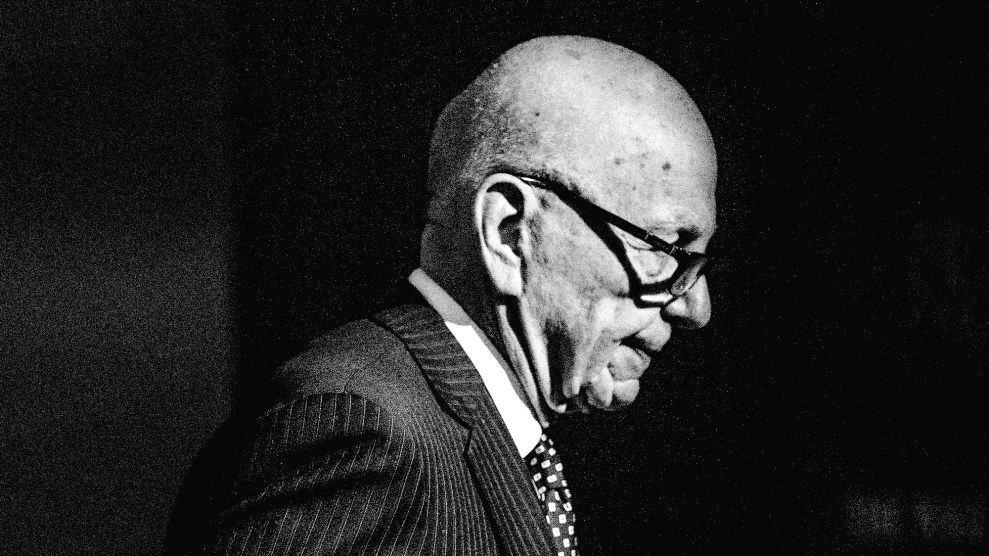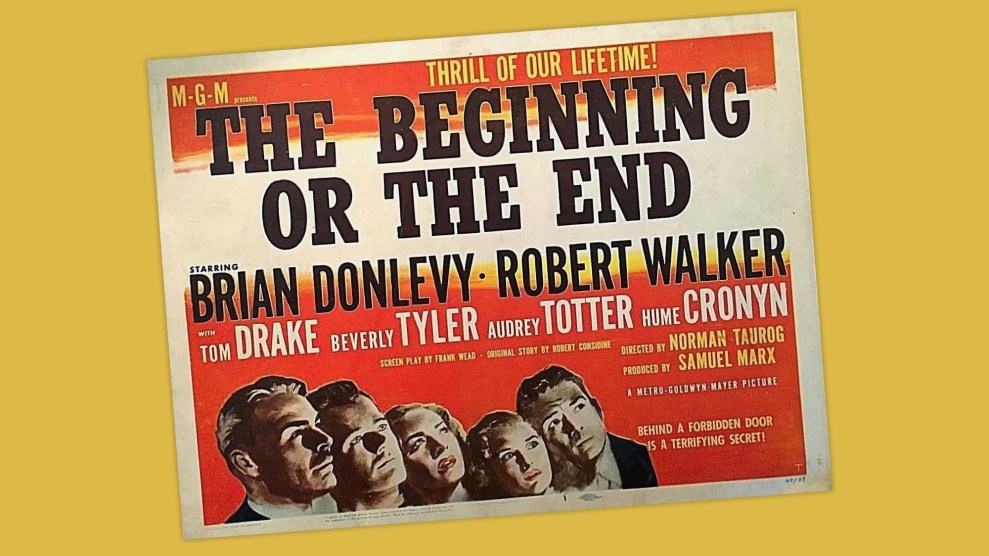
Mother Jones/MGM
The famed physicist J. Robert Oppenheimer, so-called Father of the Atomic Bomb and alleged national security risk, has been portrayed in fictionalized film and TV dramas for more than 75 years, long before director Christopher Nolan placed him at the center of his new biographical thriller.
The renditions include actor Sam Waterston’s much-honored depiction in the seven-part Oppenheimer series in 1980 for PBS. Nine years later, Roland Joffe’s big-budget studio drama, Fat Man and Little Boy, foolishly cast the relatively unknown Dwight Shultz opposite megastar Paul Newman, who portrayed Gen. Leslie Groves, the Manhattan Project’s tyrannical military director. That same year, David Strathairn portrayed Oppenheimer in the TV movie Day One, and later in a PBS “American Experience” episode about the physicist’s security clearance ordeal, The Trials of J. Robert Oppenheimer.
In WGN’s little-watched 2014 series Manhattan (co-star Rachel Brosnahan had yet to become Mrs. Maisel), Oppenheimer was a fringe character, again played by an obscure actor, Daniel London. In the latest film, Nolan gives Oppenheimer star treatment via the charismatic Cillian Murphy. (Matt Damon plays Groves.) But what all of these wildly varying depictions and storylines have in common is this: Oppenheimer, who died in 1967, wasn’t around during their creation to advise, inform, or approve.
Would he have signed off on Nolan’s script? The producer of the one major docudrama that did appear during Oppenheimer’s lifetime—less than two years after the US detonated its atomic bombs over Japan—sought the physicist’s input and approval, and in that crucial role, “Oppie” succumbed to pressure. He regarded the script for MGM’s big-budget portrayal, The Beginning or the End, as poor, even laughable. Worse, it was littered with dangerous falsehoods—thanks partly to White House and Pentagon demands—at a pivotal historical turning point, as US officials contemplated designing and testing more new weapons, including an H-bomb, that would set off an epic arms race with the Soviets.
Oppenheimer, despite his concerns, ultimately agreed to be depicted as a key character and narrator. (He also sat for two interviews by Ayn Rand as she prepared the screenplay for a rival movie.) The making and unmaking of The Beginning or the End, a saga I explore fully in my 2020 book of the same title, reveals much—not only of Oppenheimer’s character, but of the determination of America’s leaders to embrace, and to justify, the most terrible weapons humankind has ever created.
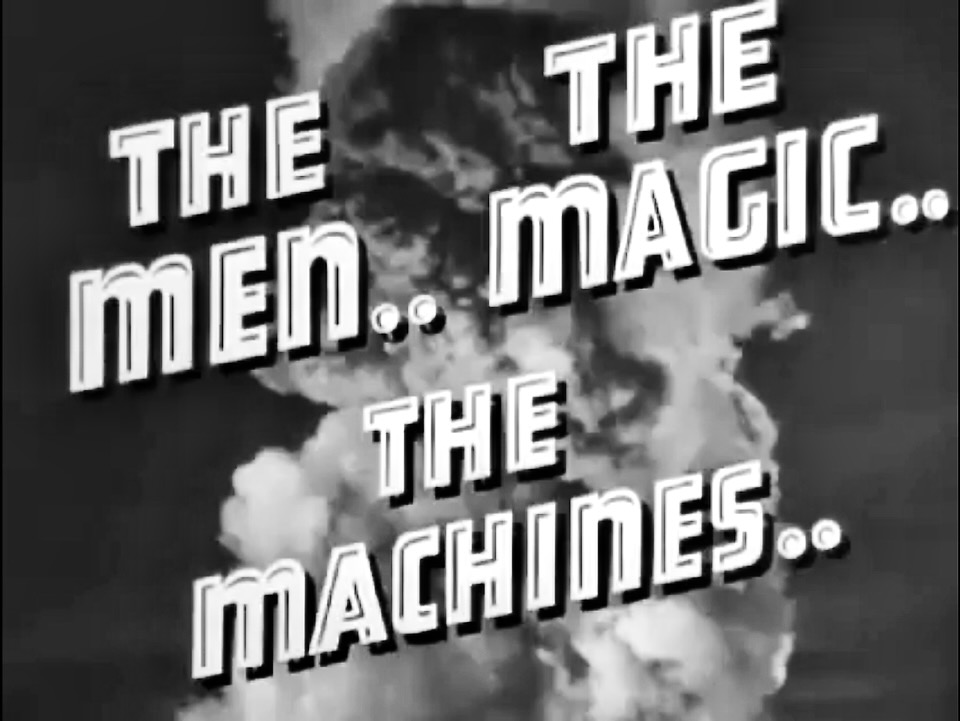
A trailer snippet from The Beginning or the End.
MGM
MGM began work on The Beginning or the End in the autumn of 1945, inspired by scientists begging Hollywood to produce a film that would discourage the government from building more powerful nukes that would imperil the world. Oddly, it was actress Donna Reed, through her husband, an agent, who got the project rolling after receiving two letters from a former high school chemistry teacher and Manhattan Project scientist.
As the film project progressed, studio co-founder Louis B. Mayer called it the “most important” movie he would ever produce. But in the year that followed, the intended message took a U-turn. Major—sometimes unintentionally comical—falsehoods were introduced into the script to such an extent that the final product would be little more than pro-bomb propaganda. President Harry S. Truman and Gen. Groves, both of whom were granted script approval, ordered dozens of cuts and revisions. Truman even forced a costly re-take and had the actor playing him fired.
More troubling for MGM executives, the studio needed to convince the scientists portrayed in the film to sign releases granting their permission for actors to portray them. Producers tried for months to get Albert Einstein, Leo Szilard, and Oppenheimer to sign off, while promising them (unlike Groves) no fee.
These early efforts were to no avail, and no wonder. MGM was so anxious to please Washington that it allowed outrageous fictionalizations: The Japanese, in one iteration, were on the verge of developing their own bomb—in Hiroshima, no less. An American scientist received a fatal dose of radiation while arming the Hiroshima bomb and later reappeared as a ghost, assuring his wife that our nuclear future was “so bright.” Hiroshima was showered with warning leaflets before the bomb was dropped. The Enola Gay was met by enemy fire over Japan while shuttling its payload of death.. And none of the scripts mentioned Nagasaki.
Einstein and Szilard eventually signed off, despite their qualms, but the ever-conflicted Oppenheimer resisted. Prepared for the worst, MGM changed his name in one version of the script to the implausibly WASP-y “Whittier.”
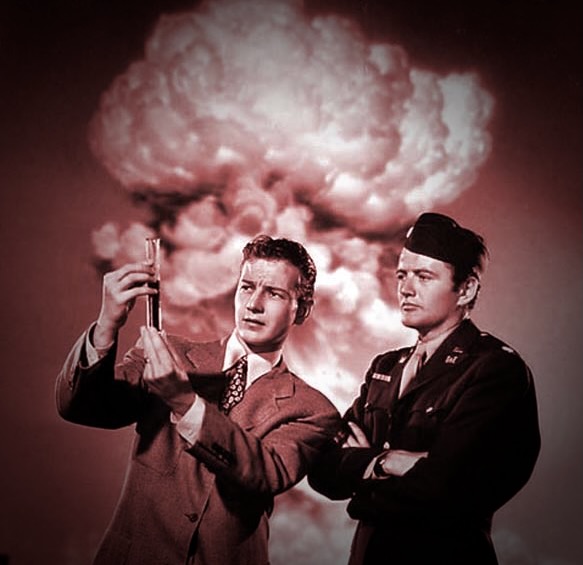
Left, Tom Drake as Matt Cochran, the character Oppenheimer called the “ethical scientist.” Drake’s character dies only to come back as a ghost to assure everyone that nukes are totally chill.
MGM
On April 18, 1946, producer Sam Marx sent Oppenheimer a copy of the latest screenplay in the hope he would at least “glance through it” before they met in Berkeley three days hence. That version had the Oppenheimer/Whittier character narrating and playing a central role in the film.
After dinner at Oppenheimer’s villa in the Berkeley Hills overlooking the San Francisco Bay, Oppie spoke frankly with Marx about the script. (Marx, whom Oppenheimer had told he would accept as his fee a few nylon stockings, then scarce, for his wife, had shown up bearing them.) In a subsequent letter to his friend J.J. Nickson, Oppenheimer recounted the evening’s discussion, which went something like this:
Oppenheimer: Some of the themes in the movie are sound, but most of the supposedly real characters like [Enrico] Fermi and myself are stiff and idiotic. When Fermi hears of fission he says my what a thrill, and my most characteristic phrase was gentlemen, gentlemen, let us be calm.
Marx: I understand.
Oppenheimer: Most of the trouble rests in ignorance and bad writing, rather than in anything malign.
Marx: That may be true, but look at these newly signed agreements by Fermi and a few others.
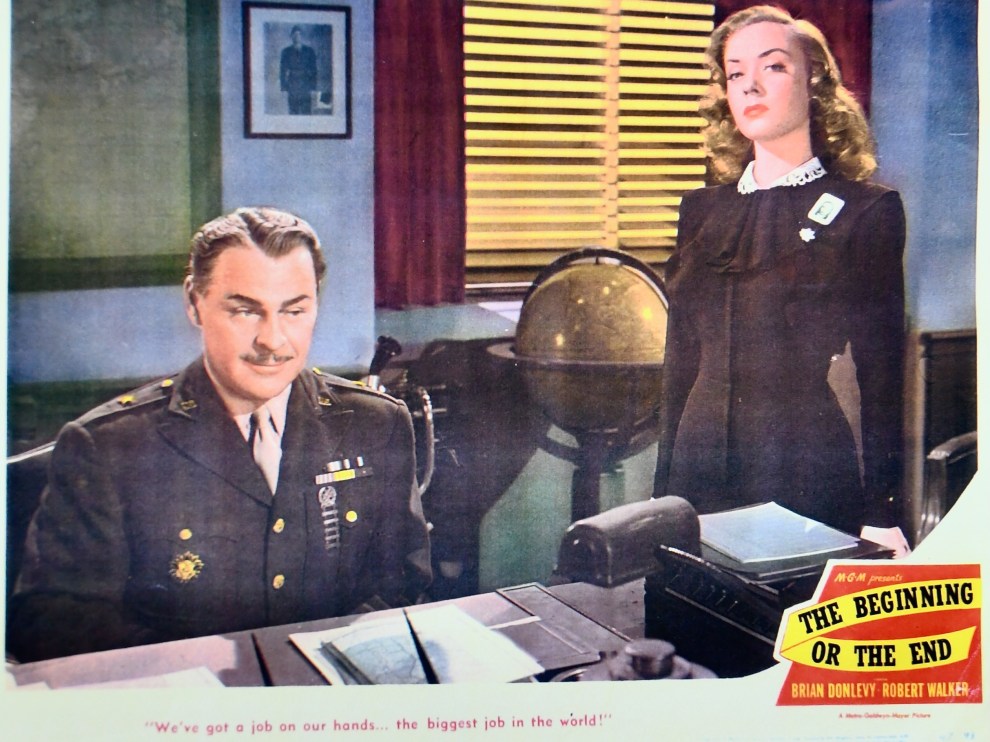
Gen. Leslie Groves and his secretary, Jean O’Leary, as depicted by actors Brian Donlevy and Audrey Totter.
MGM
Oppenheimer: Well, what kind of agreement can you and I make? For example, how about hiring as technical adviser my former aide and Los Alamos historian David Hawkins? Also, I want to be portrayed as a friend of that ethical scientist, what’s his name, Matt Cochran.
Marx: Okay on all that. In addition, we will correct factual errors you mentioned and take seriously all of your other gripes and proposed additions. Let’s shake on it.
Oppenheimer told Nickson he found his Hollywood visitor “honestly eager to get the script improved,” but even after the promised revisions, he predicted, “It won’t be very good.”
At least in the current story, he added, the scientists were depicted as “ordinary decent guys, that they worried like hell about the bomb, that it presents a major issue of good and evil to the people of the world.” He concluded: “I hope I did right. I think the movie is a lot better for my intercession, but it is not a beautiful movie, or a wise and deep one. I think it did not lie in my power to make it so.” (In fact, Marx’s changes would be minor and the script only became more flaky, but Oppenheimer apparently never followed up.)
Oppenheimer seemed uncommonly insecure after giving MGM’s misguided project a major (and somewhat unexpected) boost. “Let me hear from you,” he asked Nickson, “particularly if you think I did wrong or want me to try again.” Oppie had other things to worry about as well. The FBI had started tapping his home phone and recording the conversations.
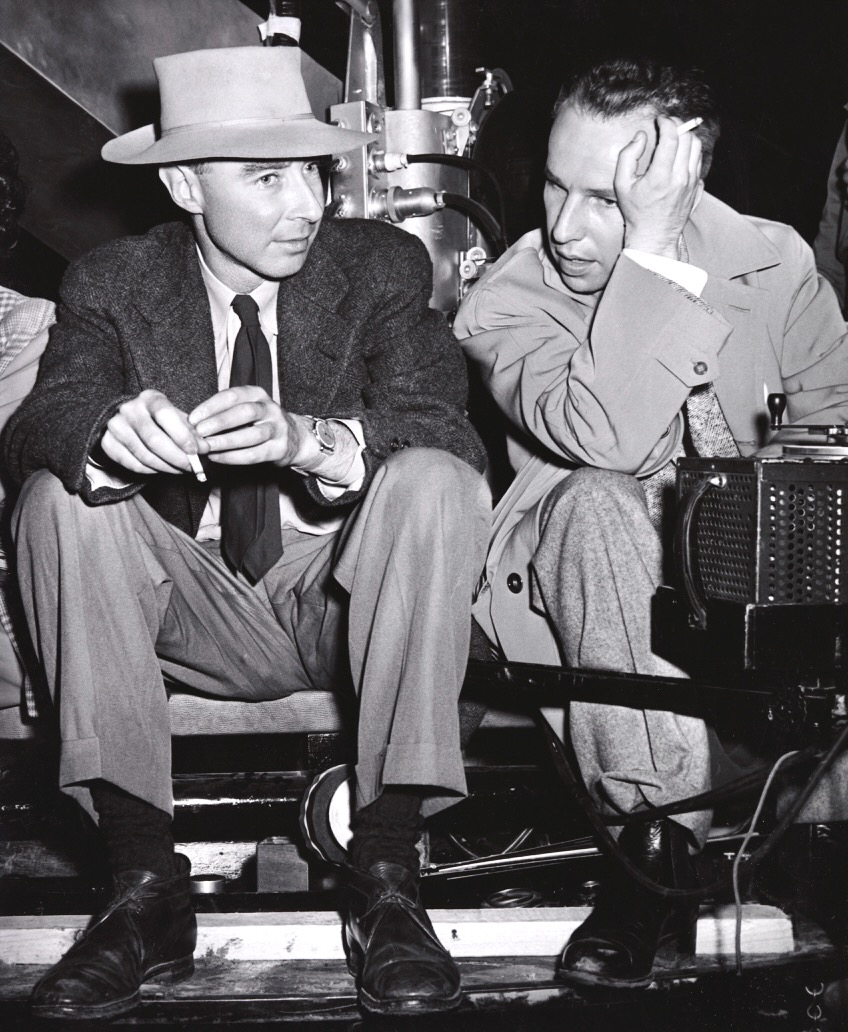
The real Oppenheimer on set, left, with Hume Cronyn, who played him in the film.
MGM
To portray Oppenheimer, the studio was set on the accomplished—though not A-list—Canadian actor, Hume Cronyn, who did not resemble him in the least.
In a letter, Marx assured Oppenheimer that he’d impressed on screenwriter Frank Wead and director Norman Taurog that his character “must be an extremely pleasant one with a love of mankind, humility and a pretty fair knack of cooking.” Marx closed: “I would rather see you pleased with this picture than anyone else who has been concerned with the making of the atom bomb.” (It never hurt to appeal to Oppenheimer’s vanity.)
Two weeks later, near the end of a lengthy phone conversation, Kitty Oppenheimer informed her husband, who was away, that he’d received a letter from a “Hugh Cronin,” according to a FBI transcript of the call first revealed in my book. In the letter, which explained “why he would like to be you,” Kitty said, Cronyn gently mocked the script but promised to do his best in portraying Oppenheimer.
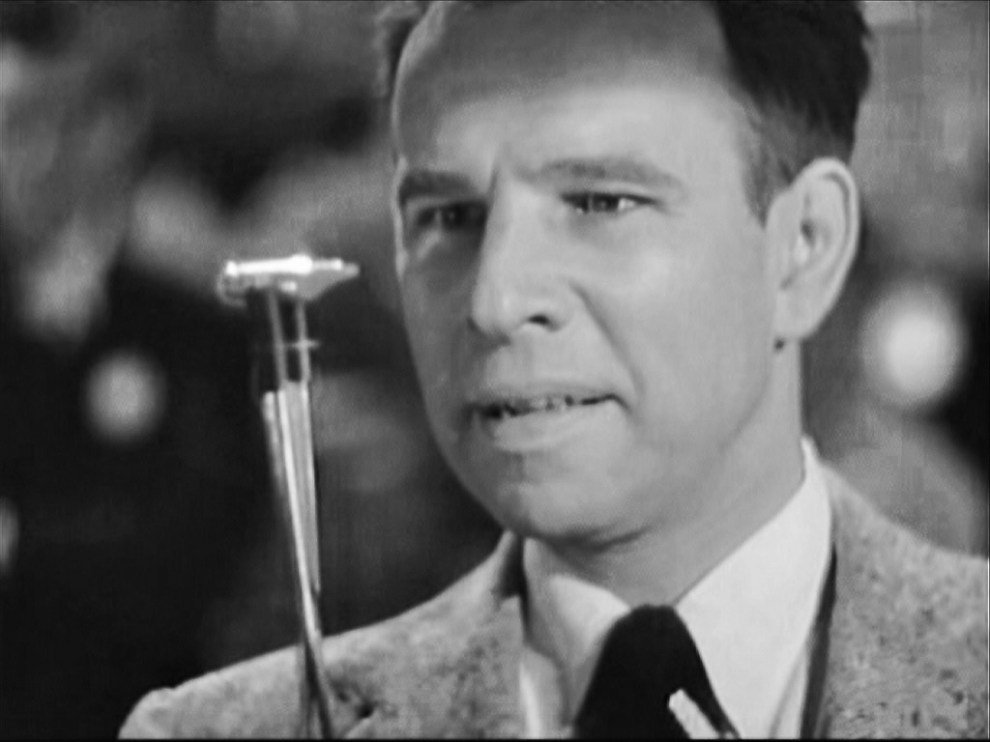
Cronyn as Oppenheimer.
MGM
“Well, I’ll tell you what I did on this,” Oppenheimer replied, before making a reference to Gen. Groves’ top aide: “This very ugly creature, [Colonel W.A.] Consodine, called me and said that Marx had said it was all right and would I sign the release, and I said, sure. I got the release and I signed it with a paragraph written in saying that all of this is subject to my receipt of a statement from Mr. Sam Marx that he believes the changes that have been made are satisfactory.”
Kitty: Oh.
Robert: Well, I didn’t think there was anything else to do. I don’t want anything from them and if I can work on his conscience, that is the best angle I have. It just isn’t worth anything otherwise, darling.
The call faded in and out. “The FBI must have just hung up,” Oppenheimer quipped.
Kitty: Giggles.
“The only thing we can do there is to try to persuade them to do a decent job,” her husband concluded.
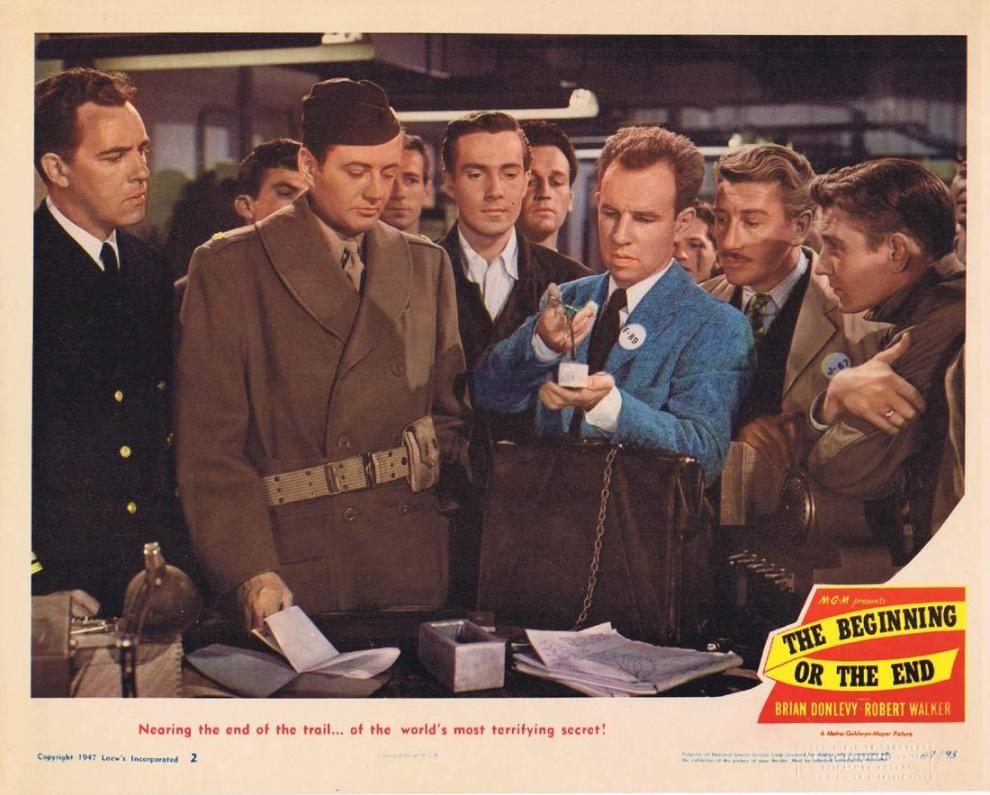
Cronyn’s “Oppie” with Manhattan Project comrades.
MGM
A few days later, Oppenheimer visited the set in Hollywood to meet Cronyn and view a rough cut of the film. His only recorded note was a complaint that the bomb was raised to the top of the tower at the Trinity test site far too fast.
The movie hit theaters the following March—Oppenheimer was invited to the premiere gala but didn’t attend. It flopped and quickly faded from importance. But the FBI’s surveillance of Oppenheimer continued for years, culminating in a 1954 hearing that cost Oppie his security clearance and led to a steady decline of his influence in the national discourse on nuclear weapons policy.
Oppenheimer never commented publicly about his involvement in the film. Although he became known as an arms control advocate—as highlighted in Nolan’s Oppenheimer—he admitted in his final interviews that he did not regret leading the Manhattan Project scientists at Los Alamos, nor question the 1945 precedent of using the revolutionary new weapon on civilian populations—a precedent that, in the end, makes the further use of nuclear weapons in the future more plausible.
Oppenheimer opens in theaters on July 21.
Documentary filmmaker Greg Mitchell is the author of a dozen books, including 2020’s The Beginning or the End: How Hollywood—and America—Learned to Stop Worrying and Love the Bomb.



